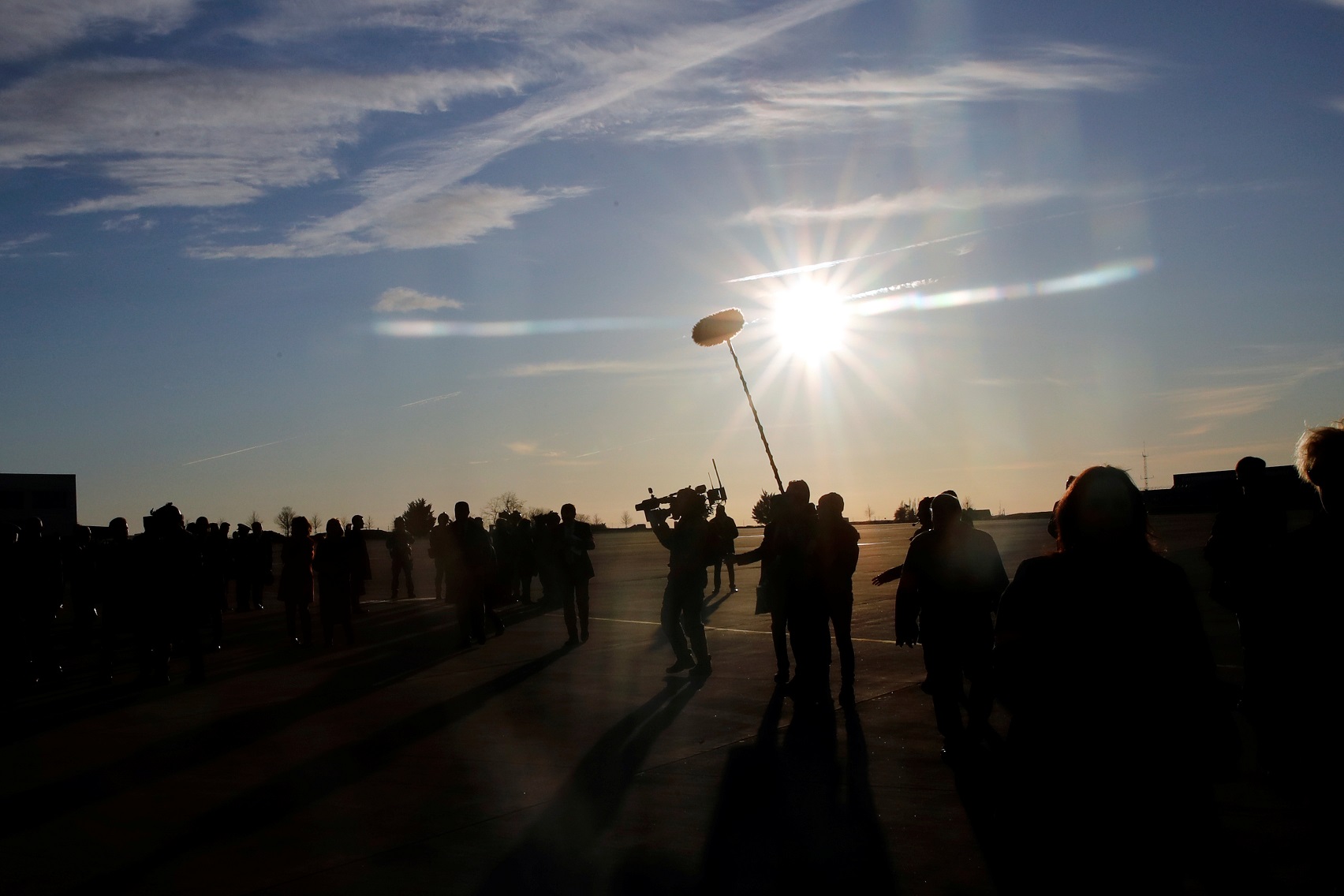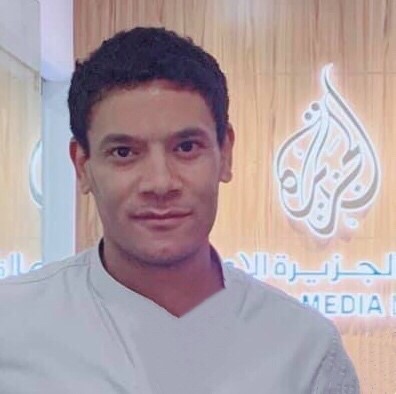برزت تقارير القصص الإنسانية -أو ما تسمى تقارير الفيتشر- كنوع جديد من التقارير الصحفية التي تتجاوز وظيفتها مجرد نقل الخبر، إلى حمل الهم الإنساني والكشف عن خفايا شريحة كبيرة من الناس تعيش أوضاعا مريرة قلّما تسلط عليها الأضواء، وهي مهمة تعجز عن القيام بها قوالب أخرى من التقارير الصحفية تراوح بين صياغة الخبر والتزام المحرر بالسياسات التحريرية الجامدة.
حتى أواخر سبعينيات القرن الماضي، كان يعتبر هذا النوع من التقارير ثانوياً في نشرات الأخبار وصفحات الجرائد المتخمة بأحوال السياسيين والمشاهير وأصحاب المال والسلطة، وكان دور الصحفي ينحصر في رصد الحدث الذي يصنعه الساسة، إلى أن ظهرت الصحافة الإنسانية لتعيد ترتيب الأدوار وتوجه الاهتمام إلى أولئك المهمشين في متن الخبر، المستضعفين خلف ظلال بعيدة لا تصلها عدسات المصورين.
وتجلى بزوغ هذا النوع من الصحافة في تصدّر صورة الطفلة "كيم فوك" الهاربة من قنابل النابالم، مشاهد الحرب الفيتنامية، لتصبح تلك الطفلة الحافية العارية محور الحدث ومركز اهتمام العالم، وليس ظهور الرئيس الأميركي ريتشارد نيكسون معلقا على الحرب.
وفي وقت لاحق، جاءت قصة الطفلة البشتونية شربات جولا التي أصبحت العنوان الأبرز في الحرب السوفياتية على أفغانستان، وليس التدخل السوفياتي لدعم الحكومة الأفغانية.
مثل هذه الصور والقصص التي تحمل بُعدا إنسانيا واجتماعيا، كانت سببا في اتخاذ قرارات تاريخية هامة، فصورة الطفلة الفيتنامية التي أسالت الكثير من الحبر، أوقفت الحرب الأميركية على فيتنام عام 1975. كما ساهمت صورة الطفلة البشتونية وما تبعها من تقارير ومقالات ذات صلة، في لفت أنظار العالم إلى معاناة الأطفال الأفغان تحت وطأة الحرب التي اندلعت في ثمانينيات القرن الماضي، فكانت تلك الحقبة تأسيسا لتفتح الوعي على مدى تأثير الصورة والكلمة في تشكيل وتحشيد الرأي العام بعيدا عن منابر الساسة وخطاباتهم الإنشائية.
دور التحرير الصحفي
كل ما سبق، يضعنا أمام طبيعة الدور الذي ينبغي أن يقوم به التحرير الصحفي الحر أو المتحرر من الأطر الكلاسيكية الجامدة، باعتباره محور العملية الإعلامية التي تقوم على نقل الصورة أو الخبر إلى المتلقي، انطلاقا من الإنسان وإليه.
ويقع هذا الدور على عاتق المحرر ومدى قدرته على توظيف مهاراته الأدبية للمزج بين السياسي والإنساني في قصته الصحفية. فالفيتشر سواء كان سياسيا أو اجتماعيا، يستدعي أن يكون لدى الصحفي مهارات خاصة قد لا يحتاجها محررو الأخبار الملتزمون بسياسات تحريرية محددة، مثل: مهارات بناء الأفكار، والسرد الدرامي، والقدرة على توظيف الصور والمفردات ضمن تراكيب لفظية تثري المساحة الأدبية في النص.
وهذه متطلبات قد يرى فيها البعض غلوًّا، لكنها أساسية وضرورية، وتكاد تكون شرطا للخوض في هذا المضمار، لذلك يعتبر الفيتشر أحد أصعب أنواع الفنون الصحفية، إن لم يكن أصعبها.
أنسنة القصة الصحفية
يمثل البعد الإنساني محور العملية الإبداعية في كتابة الفيتشر الصحفي، ودون توفر هذا البعد لا قيمة لأي قصة صحفية مهما كانت واقعية، وبالتالي فإن أنسنة القصة أو الخبر هو المدماك الأول في بناء التقرير، ومن ثم تأتي الخطوات التالية تباعا.
فعلى سبيل المثال، إعداد تقرير إخباري يتناول ارتفاع معدلات التلوث في العاصمة الصينية بكين، ومساعي الحكومة للحد من آثاره باللجوء إلى تعزيز وسائل النقل الصديقة للبيئة، لن يترك أثرًا في نفوس المتابعين باعتبار أن الخبر محلي وتداعياته كذلك.
لكن، لو تم إعداد تقرير "فيتشر" يسلط الضوء على قصة أمّ أصبحت بلا معيل بعدما فقدت زوجها وابنها الوحيد نتيجة إصابتهما بأمراض خلفها التلوث كسرطان الرئة، فإن الأثر الذي ستخلفه القصة سيكون أكبر، لأن مأساة هذه الأم ستلامس قلوب آخرين وإن كانوا على بُعد قارة من الصين.
ولا ضير هنا ما دمنا نتناول القصة الصحفية بإطارها الأدبي، أن نستشهد بتأثير الأنسنة وتطبيقها في ألوان أخرى غير الصحافة، كالشعر مثلا. ففي ديوانه الشعري "حالة حصار"، عمد الشاعر الفلسطيني الراحل محمود درويش إلى أنسنة عدوه الإسرائيلي، وقد تجلى ذلك في قصيدة "إلى قاتل"، حين خاطبه قائلا:
"لو تأملت وجه الضحية..
وفكرت،
كنت تذكرت أمك في غرفة الغاز،
كنت تحررت من حكمة البندقية..
وغيّرت رأيك:
ما هكذا تستعاد الهوية".
أثر هذه الكلمات دفع منظمات سلام إسرائيلية تترجم القصيدة إلى اللغة العبرية، ليصل معناها إلى ذاك الجندي الذي أفرغ حمولة طائرته فوق رؤوس الأطفال في غزة، ذات حرب لم تبق ولم تذر.
أخيرًا، تجدر الإشارة إلى أن أهم ما يميّز تقارير الفيتشر أنها حية، وبالتالي يمكن قراءتها في كل زمان ومكان، لأنها لا تنتهي بانتهاء الأحداث التي أوجدتْها كما هو الحال في الأخبار، لذلك يتلقاها الناس اليوم وبعد حين بنفس الشغف، لأنها قصص قريبة منهم وُلدت من رحم الإنسانية.














![Palestinian journalists attempt to connect to the internet using their phones in Rafah on the southern Gaza Strip. [Said Khatib/AFP]](/sites/default/files/ajr/2025/34962UB-highres-1705225575%20Large.jpeg)


























